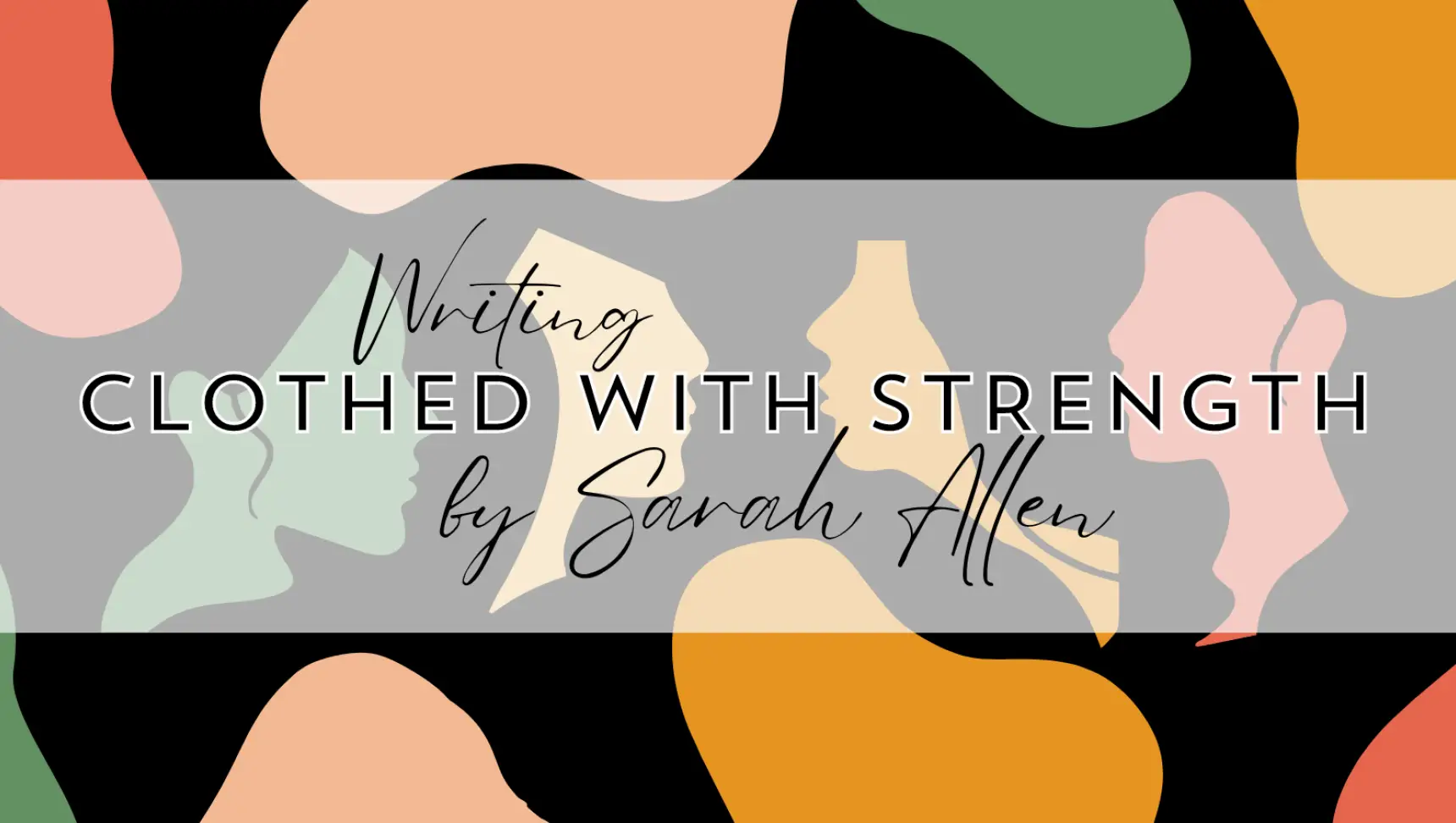
Writing Clothed With Strength
We interviewed author Sarah Allen to find out some more about the writing of her new book, Clothed With Strength.
Your book is called Clothed with Strength — If you had to wear one item of clothing everyday for the rest of your life what would it be?
Easy! It may sound a bit middle–aged, but I’m always happy in a cosy, brightly coloured cardigan.
Could you give some background to the writing of Clothed with Strength?
Teaching English in high schools has made me aware of how often today the history of women’s work in church and society has been skewed. People are led to believe that the church has always been anti–women. Even Christians end up believing that it is only in the 20th century that women’s voices have been heard. That’s just not true, and I wanted to share another way of understanding the past.
There are some great biographies of important women already out (I particularly have enjoyed books by Faith Cook, Sharon James and Clare Heath–Whyte), but often the focus is on missionaries or wives of church leaders. I felt that it was important to tell the story of women who didn’t fit in these categories, and also to show them in their context. So much changed in the eighteenth and nineteenth centuries that has shaped how we live and think, particularly with regard to women’s identities and rights. By combining the lives of four women whose lives span two centuries, Clothed with Strength gives something of an overview of those changes, too.
Through all of this, of course, Clothed with Strength is a story of God’s faithfulness and strength. I hope that as readers journey with these four women, learning about their trials and perseverance, they would be encouraged to trust God more wholeheartedly, and perhaps see in new ways how women can be used by him for works of service today.
Could you describe the process through which you wrote the book?
I’d wanted to write an adult biography nine years ago when I was writing my children’s book on Hannah More, but life became very busy with other things. As time passed and I discovered more and more stories of wonderful, godly women from the past, my desire grew and I hatched the plan of a joined–up narrative about evangelical women. It took a few nudges from good friends, who said to me “you must do that!” and “I’d like to read a book like that!” before I got going properly in lockdown.
There was plenty of research involved in my writing process. Thankfully, today a lot of old books, now out of print, have been digitised, so I could do most of it from my desk at home. These women are more known by feminist and other secular historians than Christians today, so there were quite a few resources to use. This is such a shame, especially because in their own day, these women were loved by the church – people read their books and then wrote about them, holding them up as heroines. I don’t really know why we’ve swallowed the lie that the church just wanted to suppress women in centuries gone by!
Why did you choose the four women you did?
There were quite a few women I could have chosen, but I opted for Rebecca Protten, Hannah More, Ellen Ranyard and Josephine Butler because of what they share and also what sets them apart.
Each of them had a profound reliance on God which developed as they suffered, whether from bereavements or public opposition to their work.
They all come from very different home backgrounds, and different churches within evangelicalism, which allows us to see something of church history. And the work they did covers such a wide spectrum, including evangelism, education, political campaigning, practical care, administration and writing. They deserve our attention, not only because they did such a lot of good in their own lifetimes, but also because of what we can learn from them about work which needs to be done in our societies today.
Sarah Allen was born in north Yorkshire into a Christian family. It was only when she was 13, however, that she became a Christian for herself, giving her life over to Jesus.
She studied literature at Cambridge and met her now–husband at the Christian Union there. They served at a Baptist Church in West London for 13 years before moving up to West Yorkshire in 2010 to plant a church. She has been involved in women’s students’ and children’s ministry and also trains other women for ministry. She and her husband have five children.